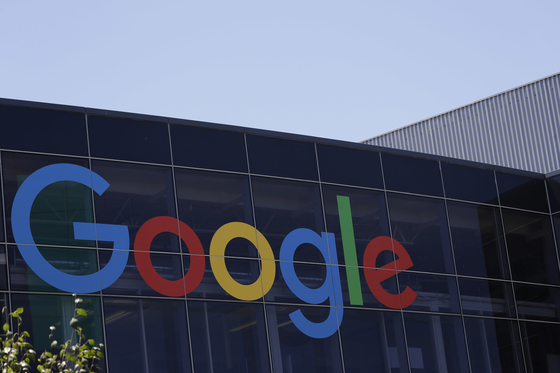![Google logo affixed to the Google headquarters building in California, USA. [AP=연합뉴스]](https://i0.wp.com/pds.joins.com/news/component/htmlphoto_mmdata/202102/23/39609d07-4bab-45f1-8128-ba579614ad3a.jpg?w=560&ssl=1)
Google logo affixed to the Google headquarters building in California, USA. [AP=연합뉴스]
Google, which has been criticized for excessive app market fees, decided to consider reducing app fees by about half. The reaction came after the South Korean National Assembly pushed ahead with a bill for compulsory prohibition of in-app payments targeting Google.
According to the National Assembly Science and Technology Information Broadcasting and Communication Committee (over-defense) on the 23rd, Google Korea told some of the over-defense lawmakers on the 19th, along with a document entitled, “Opinion on the in-app payment bill (amendment to the telecommunications business law),” “Under review” said. It seems that the bill will be discussed at the Subcommittee on the Over-Defense Bill on this afternoon, and it seems that the written opinion was submitted in advance.
Last year, Google announced that it will apply a policy (in-app payment) that enforces Google’s payment system and charges 30% of the payment amount as a fee to content apps that have entered its app market,’Google Play Store’. Accordingly, criticism arose at once among domestic app developers such as Naver and Kakao, and consumers who are concerned about an increase in rates for music and video apps. The National Assembly has also initiated an amendment to the telecommunications business law, called the “Google Gapjail Prevention Act,” and started to stop it. In addition, as Apple, an app market rival, started to cut fees sharply, Google was in trouble. Apple, which divided the global app market market together with Google, announced at the end of last year that it will lower app market fees to 15% for small and medium-sized businesses with annual sales of less than 1 million dollars (about 1.1 billion won).
Like Apple, fiddling with’half-price’ cards
![US President Joe Biden. [로이터=연합뉴스]](https://i0.wp.com/pds.joins.com/news/component/htmlphoto_mmdata/202102/23/d5af6c66-67b8-4d8e-8847-b22fa413e8ff.jpg?w=560&ssl=1)
US President Joe Biden. [로이터=연합뉴스]
According to the National Assembly’s Ministry of Defense, Google Korea is known to have persuaded lawmakers that’the head office is considering a plan to cut fees to 15% for small and medium-sized businesses like Apple. An official from the Democratic Party’s Assembly Office, along with Joon-ho Han, who initiated the amendment to the Telecommunications Business Act, said, “Google Korea (headquarters) has informed that it is considering a plan to cut fees on a larger scale to more small and medium-sized businesses than Apple.”
Earlier, Google has changed the policy of applying in-app payment for new apps starting in January this year and in September for existing apps to apply in batches in September, with the exception of Korea. It also announced a plan to invest 115 billion won for one year for the domestic app ecosystem.
“Concerns about Korea-US friction… consider Biden government”
The Google side also emphasized that if the’Google’s anti-going law’ is passed in the National Assembly, it could cause trade friction between Korea and the United States. In a document delivered by Google Korea to the committee members on the 19th, “The in-app payment bill is highly likely to violate the Korean-US FTA’s domestic treatment (Article 122) and the obligation to prohibit market access (Article 124). “If Korea takes the lead in introducing (omitted) in-app payment regulations aimed at US companies in the context of continuing the protection trade stance, there is a concern that it could be a major negative factor in the formation of diplomatic relations in the early days of the Biden administration.”
The document also emphasized that “Google is currently reviewing policies to support the growth of domestic app developers from various angles,” and “app market fees are the price of a brokerage service for developers to distribute and sell content to users around the world.” . He pointed out that “Naver, Kakao, etc. use the Google payment system overseas (like other app developers) and pay fees, but they do not pay fees in Korea.”

Apple App Store and Google Play Store. Photo = Shutterstock, Graphic = Reporter Jeong Won-yeop
Split opinions on the’Google Prevention Act’
Meanwhile, on the afternoon of the 23rd, in the subcommittee on the over-defense bill, the opposition and opposition lawmakers disagreed on the passage of the bill. Opposition lawmakers were generally lukewarm about the passage, such as “the market intervention should be minimized (Heo Eun-ah, the people’s power)” and “There is no overseas case, so we should watch more (Park Sung-jung, the people’s power)”. On the other hand, the ruling party lawmakers said, “The problem that prevents developers from using their own payment system (deprivation of options) (Yun Young-chan, Minju)” and “to foster domestic business owners (to allow developers to enter the domestic app market such as One Store) equal access rights. It was a position that Google should be actively sanctioned, such as “Han Joon-ho and Min-ju”. There was also a neutral proposal saying, “I agree with the resolution of Google’s monopoly interests, but I am concerned about double regulation (Park loan, the power of the people).
Reporter Jeongmin Kim [email protected]
